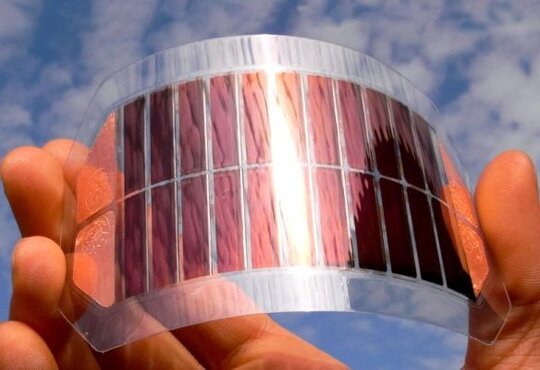
Research on Organic Solar Cells - The Next-Gen Primary Energy Source
CIOReviewIndia Team | Thursday, 05 November 2020, 06:10 IST
 The organic solar cells cost low in production and are more flexible than any other cell, which is made of crystalline silicon. Solar cells offer higher efficiency and stability. Some famous researchers in recent times are working on the improvement of the properties of the cells powered by solar energy. One researcher concluded that efficiency can be augmented using luminescent acceptor molecules. The researcher demonstrated his conclusion.
The organic solar cells cost low in production and are more flexible than any other cell, which is made of crystalline silicon. Solar cells offer higher efficiency and stability. Some famous researchers in recent times are working on the improvement of the properties of the cells powered by solar energy. One researcher concluded that efficiency can be augmented using luminescent acceptor molecules. The researcher demonstrated his conclusion.
With around 1000 watts per square meter energy by the sun on a clear day at the European latitudes, the conventional monocrystalline silicon solar cells get the ability to convert this energy up to a fifth into electricity, generating almost 20 percent efficiency. A renowned professor’s work detailed the world record for efficiency in an organic photovoltaic module of 12.6 percent since September 2019.
Organic solar cells have the advantage of being thin and flexible like a foil, which can be adapted for fitting various substrates. The organic solar cells operate at a wavelength, at which the sunlight is absorbed gets to be adjusted via the macro modules used in the process. Organic solar cells operate at different spectrum where it absorbs the red and infrared spectrum with thermal radiation, generating electricity simultaneously.
An important factor for an organic solar cell is climate. It is estimated that most of the present-day photovoltaic cells’ efficiency is only about 15-20 percent. And as the intensity of the solar radiation stays low at the beginning, even generating a small amount of power, the cells required are large and it becomes costly for producing power.
A traditional solar cell when compared to an organic equivalent, there stays a definite disadvantage as sunlight takes time for producing charge for current flow. There is an intermediate stage, where it produces excitons – a bound state of an electron and an electron-hole, which are attracted to each other by the electrostatic Coulomb force.
There is a requisite of a certain driving force for separating the charges, where the driving force is dependent on the molecular structure of the used polymers. The most used materials for the part of electron acceptors in organic solar cells at present is the specific type of molecules from the fullerene class of materials. Also, scientists have discovered a high driving force having an adverse voltage effect. According to a derivation by the scientists, the solar cell output decreases, equivalently with the formula which is applicable to direct current – power equals voltage times current.
The solar cells generated renewable energy is regarded as the alternative to the present-day energy supply, where silicon solar cells are getting commercialized, turning into an indispensable electricity source. The cost of electricity generated by silicon solar cells is a matter of concern when compared to petroleum, and it's required to find ways for producing and distributing solar energy cells at low cost than produced by petroleum. There is a huge potential for organic cells in the forthcoming generation. Organic solar cells have the advantage of application in various supporting materials, which has the potential to change solar energy dynamically.
CIO Viewpoint
Digital Disruption - To Drive Next Wave Of...
By Jatinder Bansal, AVP & Head IT, ReNew Power Ventures Ltd
IT Services Outsourcing - Challenges to Conquer
By Umasankar Pandurangan, AGM- IT, HPCL- Mittal Energy Limited
Hadoop Uncovering Hidden Patterns to Make...
By Priyadarsanie Ramasubramanian, Head - Engineering and Technology, Tesco
CXO Insights
What is SF6 and why is it important?
By Guilherme Susteras, IEEE Senior Member
Unlocking Growth Via Digitalization Of The...
By Shikhar Gupta, Director, PwC
From Power to Lifestyle - The Future of Solar...




.jpg)
.jpg)




